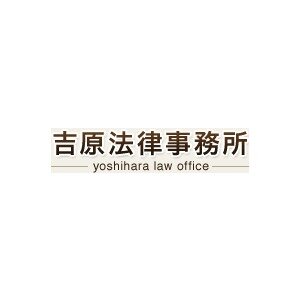Best Creditor Lawyers in Sapporo
Share your needs with us, get contacted by law firms.
Free. Takes 2 min.
List of the best lawyers in Sapporo, Japan
About Creditor Law in Sapporo, Japan
Creditor law in Sapporo, Japan, involves legal regulations governing the rights and obligations of creditors-those to whom money is owed. This area of law deals with the enforcement of financial or debt-related rights, ensuring that creditors can collect what is owed to them in a legal manner. Japan’s legal system provides various mechanisms for creditors to ensure repayment, ranging from negotiation and mediation to legal action through the courts.
Why You May Need a Lawyer
There are several situations where individuals or businesses might require legal assistance in creditor matters in Sapporo. These can include collecting outstanding debts, negotiating repayment terms, handling complex financial disputes, or navigating insolvency proceedings. A lawyer can help in understanding the nuances of creditor laws, representing interests in legal proceedings, and providing strategic advice on debt recovery and management.
Local Laws Overview
Sapporo, like other cities in Japan, follows national legislation regarding creditor rights, with the Civil Code being the foundational legal document. Key aspects include different types of security interests (such as mortgages and liens), insolvency and bankruptcy laws, the process for filing claims in court, and the statute of limitations for debt collection. Understanding these laws is crucial, as missteps in the legal process can lead to the loss of creditor rights or unfavorable outcomes.
Frequently Asked Questions
What steps should a creditor take if a debtor fails to pay in Sapporo?
A creditor should first attempt amicable negotiations or arrange a mediation before pursuing legal action. If these efforts fail, creditors may file a lawsuit to obtain a court order for the debt recovery.
How long does a creditor have to file a claim for outstanding debt?
In Japan, the statute of limitations for claims is generally five years for most debts from the date the payment becomes due, but it can vary based on the nature of the debt.
What is the process for enforcing a court judgment against a debtor?
Once a court judgment is obtained, the creditor can request a court execution order, which may involve seizing and selling the debtor's assets to satisfy the debt.
Can a creditor demand obligations other than money from the debtor?
Generally, creditor rights focus on monetary claims, but if a contract specifies alternative obligations, it would depend on the agreement's terms and the court's interpretation.
What options are available if a debtor declares bankruptcy?
In the event of bankruptcy, creditors must file their claims with the bankruptcy trustee, participating in the distribution of the debtor's estate according to priority.
Is mediation mandatory before litigation in creditor disputes?
Mediation is not strictly mandatory but is highly recommended and can be stipulated as part of contractual terms between parties.
Can a creditor include interest on outstanding debts in Sapporo?
Yes, creditors can include interest, but it must be stipulated in the contract and within the legally prescribed interest rates to avoid classification as usury.
Are there legal protections against unjust creditor claims?
Yes, debtors can challenge claims in court, requiring creditors to prove the validity of their claims through documentation and contract stipulations.
How are cross-border creditor issues handled in Sapporo?
Cross-border issues are managed under international treaties and the private international law principles of Japan, often requiring specialized legal expertise.
What legal avenues exist for collecting debts from an insolvent debtor?
The insolvency process allows creditors to claim a portion of the debtor's assets from the estate based on prioritization and approved claims by the trustee.
Additional Resources
Those seeking further information or assistance can refer to resources such as the Sapporo Bar Association, the Japan Federation of Bar Associations, and local legal aid services. Additionally, government bodies like the Ministry of Justice and the Financial Services Agency provide guidance and regulatory updates pertinent to creditor issues.
Next Steps
If you require legal assistance in creditor matters, it is advisable to consult with a lawyer specializing in this field. Start by gathering all relevant documents and details related to the debt in question. Contact a reputable law firm in Sapporo to discuss your circumstances and explore the possibility of mediation or litigation. Professional legal guidance can ensure your rights are protected while seeking an optimal resolution.
Lawzana helps you find the best lawyers and law firms in Sapporo through a curated and pre-screened list of qualified legal professionals. Our platform offers rankings and detailed profiles of attorneys and law firms, allowing you to compare based on practice areas, including Creditor, experience, and client feedback.
Each profile includes a description of the firm's areas of practice, client reviews, team members and partners, year of establishment, spoken languages, office locations, contact information, social media presence, and any published articles or resources. Most firms on our platform speak English and are experienced in both local and international legal matters.
Get a quote from top-rated law firms in Sapporo, Japan — quickly, securely, and without unnecessary hassle.
Disclaimer:
The information provided on this page is for general informational purposes only and does not constitute legal advice. While we strive to ensure the accuracy and relevance of the content, legal information may change over time, and interpretations of the law can vary. You should always consult with a qualified legal professional for advice specific to your situation.
We disclaim all liability for actions taken or not taken based on the content of this page. If you believe any information is incorrect or outdated, please contact us, and we will review and update it where appropriate.










